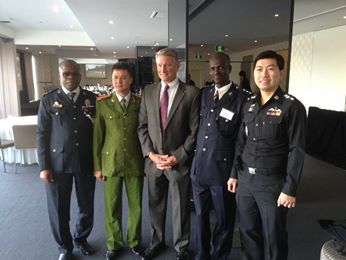Report launched by the Open Society Foundation at AIDS2014
Around the world, sex workers and people who use drugs report that police are often a major impediment to accessing health and social services. Common police practices—using condoms as evidence of prostitution, harassing drug users at needle exchange points, or confiscating medications for drug treatment—fuel the HIV epidemic by driving sex workers and drug users away from life-saving services.
Emerging partnerships between police, health experts, and community groups are beginning to prove that law enforcement and HIV-prevention programs can work together to save lives while reducing crime. When successfully implemented, these programs reduce the risk of HIV and drug overdose, and protect the health and human rights of these communities.
Through detailed case studies from Burma, Ghana, India, Kenya, and Kyrgyzstan, this report examines how public health-centered law enforcement can reduce the risk of HIV infections among sex workers and drug users.
The lessons of more than two decades of the response to HIV are clear: Police reform and community-police cooperation are as crucial to HIV prevention among criminalized groups as a condom or a clean needle, and should be supported as a central part of HIV and AIDS programming.



